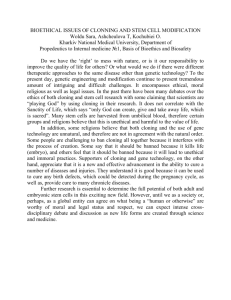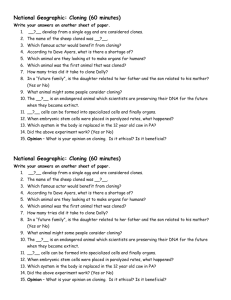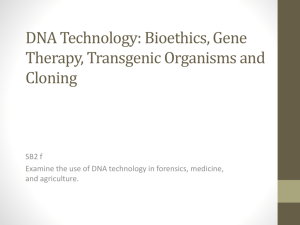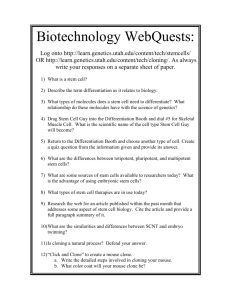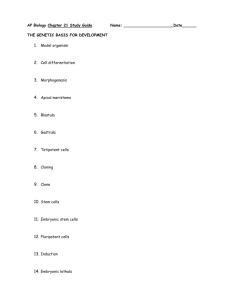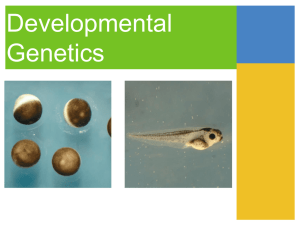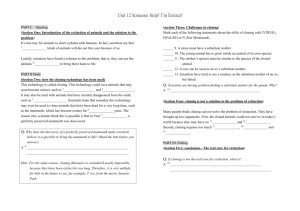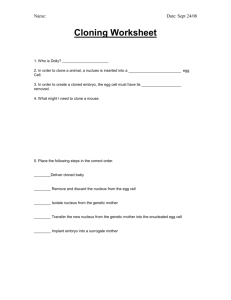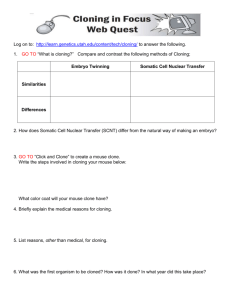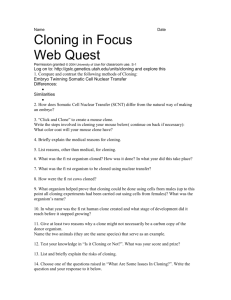File
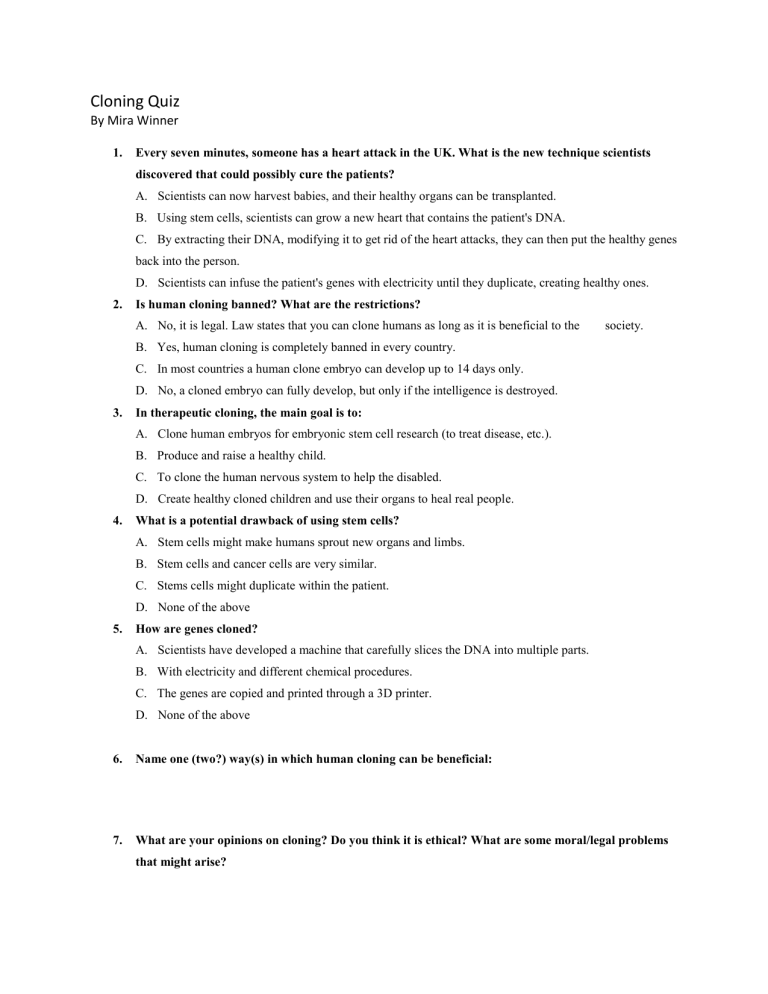
Cloning Quiz
By Mira Winner
1.
Every seven minutes, someone has a heart attack in the UK. What is the new technique scientists discovered that could possibly cure the patients?
A. Scientists can now harvest babies, and their healthy organs can be transplanted.
B. Using stem cells, scientists can grow a new heart that contains the patient's DNA.
C. By extracting their DNA, modifying it to get rid of the heart attacks, they can then put the healthy genes back into the person.
D. Scientists can infuse the patient's genes with electricity until they duplicate, creating healthy ones.
2.
Is human cloning banned? What are the restrictions?
A. No, it is legal. Law states that you can clone humans as long as it is beneficial to the society.
B. Yes, human cloning is completely banned in every country.
C. In most countries a human clone embryo can develop up to 14 days only.
D. No, a cloned embryo can fully develop, but only if the intelligence is destroyed.
3.
In therapeutic cloning, the main goal is to:
A. Clone human embryos for embryonic stem cell research (to treat disease, etc.).
B. Produce and raise a healthy child.
C. To clone the human nervous system to help the disabled.
D. Create healthy cloned children and use their organs to heal real people.
4.
What is a potential drawback of using stem cells?
A. Stem cells might make humans sprout new organs and limbs.
B. Stem cells and cancer cells are very similar.
C. Stems cells might duplicate within the patient.
D. None of the above
5.
How are genes cloned?
A. Scientists have developed a machine that carefully slices the DNA into multiple parts.
B. With electricity and different chemical procedures.
C. The genes are copied and printed through a 3D printer.
D. None of the above
6.
Name one (two?) way(s) in which human cloning can be beneficial:
7.
What are your opinions on cloning? Do you think it is ethical? What are some moral/legal problems that might arise?
